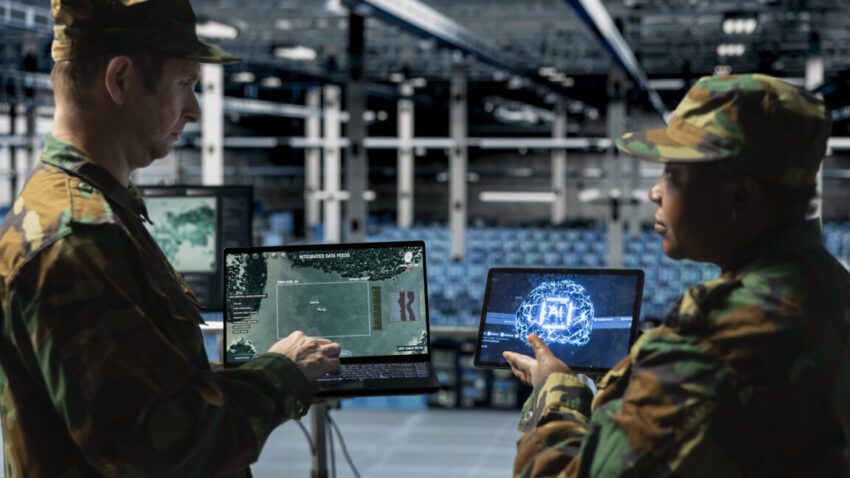
army general says he s using ai At a recent military conference, a high-ranking U.S. Army general revealed the integration of artificial intelligence into decision-making processes, highlighting its potential to enhance operational efficiency.
army general says he s using ai
AI’s Growing Role in Military Operations
Artificial intelligence (AI) has increasingly become a focal point in various sectors, including healthcare, finance, and now, the military. The U.S. Army is exploring AI’s capabilities to improve decision-making and operational efficiency. This shift aligns with broader trends in the use of AI technologies across industries, where organizations are leveraging machine learning and natural language processing to enhance productivity and streamline processes.
Insights from OpenAI’s Usage Study
Last month, OpenAI published a study revealing that nearly 15 percent of work-related conversations on ChatGPT revolved around “making decisions and solving problems.” This statistic underscores the growing reliance on AI tools for critical thinking and decision-making tasks. As organizations increasingly adopt AI solutions, the military is no exception. The Army’s exploration of AI technologies reflects a broader recognition of the need for innovative approaches to complex challenges.
General Taylor’s Remarks at the Association of the US Army Conference
At the recent Association of the U.S. Army Conference in Washington, D.C., Major General William “Hank” Taylor shared insights into how the Army is leveraging AI to enhance decision-making capabilities. During a roundtable discussion with reporters, Taylor stated, “Chat and I are really close lately,” referring to an unspecified AI chatbot. This informal remark highlights the growing familiarity and integration of AI tools in military operations.
Operational Applications of AI
General Taylor leads the Eighth Army, which is stationed in South Korea. He emphasized that the Army is “regularly using” AI to modernize predictive analysis for logistical planning and operational purposes. This application of AI is particularly significant in a military context, where timely and accurate decision-making can have profound implications for mission success.
According to Taylor, AI assists in various tasks, including:
- Logistical planning
- Operational decision-making
- Administrative paperwork, such as writing weekly reports
By utilizing AI for these tasks, the Army aims to enhance efficiency and reduce the cognitive burden on personnel. The ability to automate routine paperwork allows commanders and soldiers to focus on more strategic aspects of their roles, ultimately improving overall mission effectiveness.
Implications of AI in Military Decision-Making
The integration of AI into military operations raises several important implications. First and foremost, it highlights a shift in how the military approaches problem-solving and decision-making. The use of AI tools can provide commanders with data-driven insights, enabling them to make informed decisions based on real-time information.
Enhancing Predictive Analysis
One of the key benefits of AI in military operations is its ability to enhance predictive analysis. By analyzing vast amounts of data, AI can identify patterns and trends that may not be immediately apparent to human analysts. This capability is particularly valuable in logistics, where understanding supply chain dynamics can significantly impact mission readiness.
For instance, AI can analyze historical data on supply usage, transportation routes, and maintenance schedules to forecast future needs. This predictive capability allows military planners to optimize resource allocation and ensure that troops have the necessary supplies and equipment when they need them.
Operational Efficiency and Speed
In addition to improving predictive analysis, AI can enhance operational efficiency and speed. In fast-paced military environments, the ability to quickly process information and make decisions is critical. AI can assist commanders by providing real-time data analysis, enabling them to respond swiftly to changing conditions on the battlefield.
Moreover, AI can facilitate communication and collaboration among units. By streamlining information sharing and ensuring that all personnel have access to the same data, AI can help reduce misunderstandings and improve coordination during joint operations.
Challenges and Considerations
While the potential benefits of AI in military decision-making are significant, there are also challenges and considerations that must be addressed. One of the primary concerns is the ethical implications of using AI in combat situations. As AI systems become more autonomous, questions arise about accountability and the potential for unintended consequences.
Ethical Dilemmas
As military leaders explore the use of AI for decision-making, they must grapple with ethical dilemmas surrounding its deployment. The prospect of AI systems making life-and-death decisions raises concerns about the loss of human oversight and the potential for errors in judgment. Ensuring that AI systems operate within ethical boundaries is crucial to maintaining public trust and accountability.
Data Security and Privacy
Another critical consideration is data security and privacy. The military relies on sensitive information to inform its operations, and the integration of AI systems introduces new vulnerabilities. Protecting this data from cyber threats is paramount, as breaches could compromise national security and operational effectiveness.
Furthermore, the use of AI in military contexts necessitates robust cybersecurity measures to safeguard against potential attacks. As adversaries also adopt AI technologies, the military must remain vigilant in protecting its systems and data.
Future Directions for AI in the Military
The U.S. Army’s exploration of AI technologies is just the beginning of a broader trend toward integrating advanced technologies into military operations. As AI continues to evolve, its applications in decision-making and operational efficiency are likely to expand further.
Investment in AI Research and Development
To fully harness the potential of AI, the military must invest in research and development initiatives. Collaborations with technology companies and academic institutions can facilitate innovation and ensure that the Army remains at the forefront of AI advancements. By fostering partnerships with the private sector, the military can leverage cutting-edge technologies and expertise to enhance its capabilities.
Training and Education
As AI becomes more integrated into military operations, training and education will be essential. Personnel must be equipped with the skills to effectively utilize AI tools and interpret the insights generated by these systems. Developing training programs that emphasize the ethical use of AI and the importance of human oversight will be critical in ensuring responsible deployment.
Conclusion
The integration of AI into military decision-making processes represents a significant advancement in how the U.S. Army approaches operational challenges. General Taylor’s remarks at the Association of the U.S. Army Conference highlight the growing reliance on AI to enhance predictive analysis, streamline logistics, and improve overall efficiency. However, as the military embraces these technologies, it must also navigate ethical dilemmas, data security concerns, and the need for robust training programs. The future of AI in the military holds great promise, but it requires careful consideration and responsible implementation to ensure its benefits are fully realized.
Source: Original report
Was this helpful?
Last Modified: October 16, 2025 at 3:35 am
3 views















